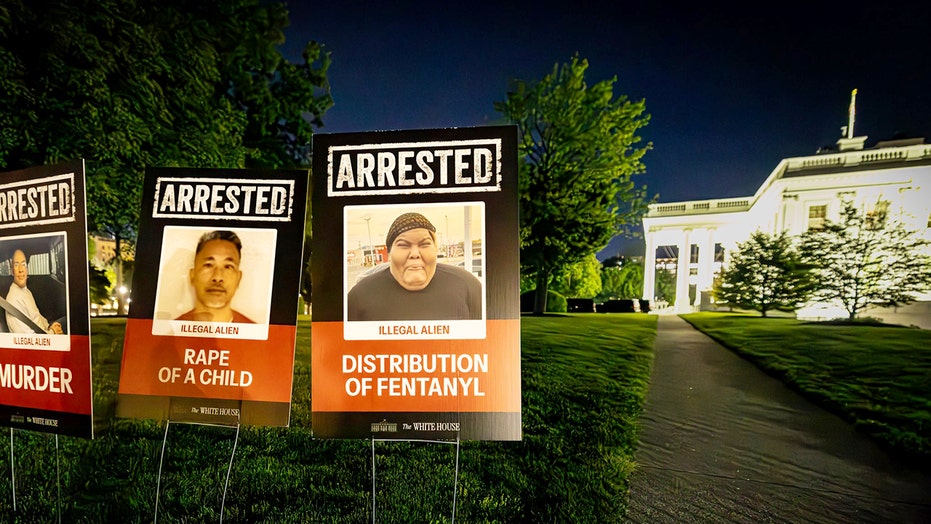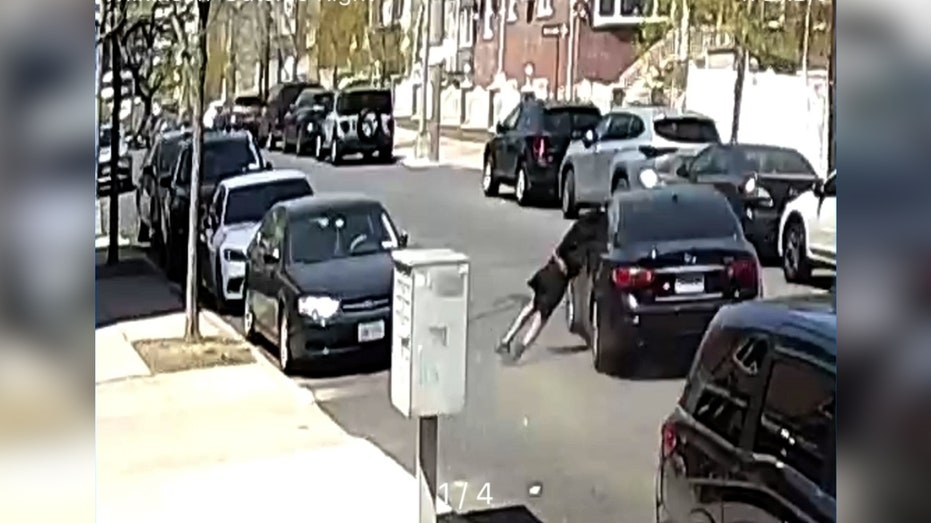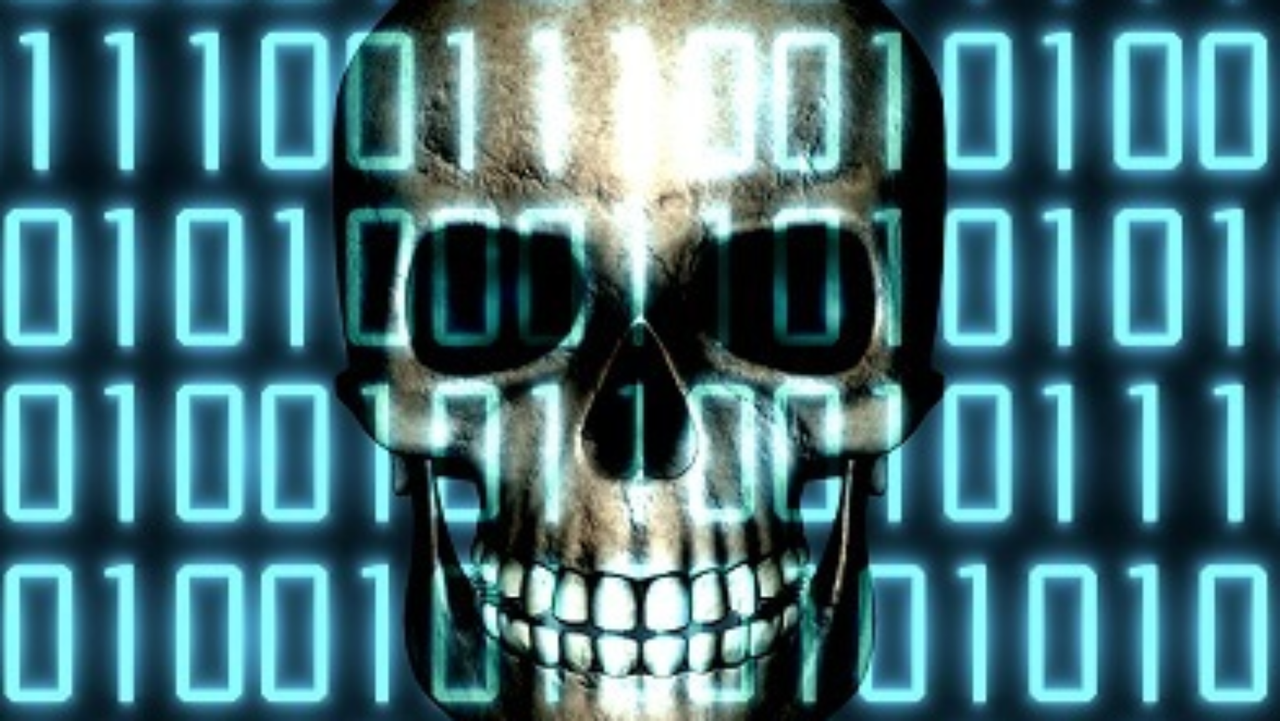Critics see 'monumental shift' in Trump remaking of DOJ civil rights division
The Trump administration has shifted staff and undertaken a series of policy changes at the Justice Department's Civil Rights Division that current and former staff say strike at the heart of its mission. Justice Department leadership has in recent weeks directed attorneys to focus on priorities laid out in executive orders from President Trump, such...

The Trump administration has shifted staff and undertaken a series of policy changes at the Justice Department's Civil Rights Division that current and former staff say strike at the heart of its mission.
Justice Department leadership has in recent weeks directed attorneys to focus on priorities laid out in executive orders from President Trump, such as “Keeping Men Out of Women's Sports” and “Eradicating Anti-Christian Bias.”
It’s a departure for a division that under former President Biden described itself as protecting the civil rights of all Americans, including “some of the most vulnerable members of our society.”
“The impact is catastrophic. They are scaling back possibly, nearly all enforcement that they have been doing for decades on civil rights statutes they're required to enforce,” said Stacey Young, a longtime Civil Rights Division attorney who now runs Justice Connection.
“This is a monumental shift in the way the division operates, and it's going to result in American civil rights not being protected as they almost always have been.”
The department last week removed roughly a dozen career leaders from their positions, pushing some into unrelated roles responsible for responding to public information requests and a complaint adjudication office. Many have since resigned, leaving many sections without any leadership beyond political appointees, with additional departures expected.
Justin Levitt, a former deputy assistant attorney general for civil rights under former President Obama, said the moves were “sidelining an enormous amount of very nonpartisan expertise” that has enforced the law under administrations of both parties.
“And the only reason you do that is if you didn't think that the laws were worth enforcing. That actually should really raise eyebrows in Congress,” he said.
The sweeping changes come less than three weeks after the swearing in of Harmeet Dhillon, Trump’s assistant attorney general for civil rights.
The former co-chair of Lawyers for Trump, Dhillon backed Trump’s efforts to challenge the 2020 election and also was among those defending him against a Colorado lawsuit arguing he should be barred from running for office due to leading an insurrection.
The California lawyer has made a name for herself by championing conservative causes, suing on behalf of Trump supporters who said actions taken by San Jose police enabled a clash with counterprotestors. She represented a Google employee fired after he criticized the company’s diversity policy by arguing biology was to account for why there were fewer female engineers at the company. She also sued California Gov. Gavin Newsom (D) over his stay-at-home order during the COVID-19 pandemic, challenging the law on behalf of churches and other entities.
In her short tenure, she’s sent out new mission statements for the division's 11 sections, with many offering a passing reference to the major statutes they enforce — such as the Voting Rights Act and the Americans with Disabilities Act — while directing attorneys to use orders from Trump to guide their priorities.
“The zealous and faithful pursuit of this section’s mission requires the full dedication of the section’s resources, attention, and energy to the priorities of the President,” the mission statement for the Educational Opportunities Section reads.
Levitt said the Civil Rights Division has a long history of protecting populations that face discrimination, whether based on race, religion, gender, disability or other factors.
“The orientation coming out of the mission statements of the Civil Rights Division thus far seem to have forgotten that,” said Levitt, now a professor at Loyola Law School.
“It’s very clear that Assistant Attorney General Dhillon made her name and came to Trump's attention bringing cases based primarily on white Christian male grievance.”
In the new mission statements, Dhillon referenced a number of orders referencing transgender issues, seeking to limit transgender participation in sports and seeking to limit transition surgeries for children. It also points to orders about combating antisemitism — something some Jewish groups have said use the very real threat as a guise to target free speech.
“It seems to be that Harmeet Dhillon is taking it quite a bit further by not just undoing the traditional mission, but really flipping the mission on its head — using the Civil Rights Division against civil rights,” said Aaron Zisser, a former attorney in the division who now runs his own practice.
“That's a scary way to wield the enormous power and resources of the Department of Justice to punch way, way down,” he said, referencing cases about transgender youth in sports.
“Of course, they say, ‘Our target is the school,’ and they're investigating the school. But in fact, they're targeting the school in order to target this vulnerable population.”
Employees are fearful the actions will undermine the spirit of a division formed in 1957 during the Civil Rights Movement and efforts to desegregate the South and protect the voting rights of Black Americans.
In the division's Voting Rights Section, the mission statement now references the need to battle “illegal dilution or error” — a nod to unproven GOP claims there is widespread voting by noncitizens and other malfeasance. Prior reviews have found a fraction of a percentage of votes illegally cast by noncitizens.
The section has previously brought cases against jurisdictions it says have unlawfully made it tougher to access the ballot. But last month, the Trump administration dropped its multiyear case against Texas, alleging the state redrew its 2020 maps in a way that discriminated against Black and Latino voters.
The housing section in its mission statement was directed to primarily focus on religious freedom cases in zoning regulations. It typically focuses its work on cases of discrimination in housing, at financial institutions, and other places of business.
“Our sections are now being weaponized against the very people they are intended to protect,” said one attorney working in the Civil Rights Division who was granted anonymity to discuss the moves.
The source said the department was focused on using “its power in a way that's really political and really just intended to go after people, entities and institutions that Trump perceives are too liberal or not obsequious enough to him.”
Employees last week were offered deferred resignation through an email from Dhillon – a second chance at the “Fork in the Road” offer pushed by Elon Musk earlier in the administration. A number of civil rights division staffers have accepted the deal.
One source said the number of staff members planning to take the deferred resignation offer could leave the division with 60 percent fewer attorneys than it had at the start of the year, estimating that the figure could stretch to 70 percent or 80 percent once final decisions are made ahead of the April 28 deadline for accepting the offer.
Dhillon defended her moves on both the policy and personnel fronts, saying she looks forward to “aggressively protecting” civil rights.
“Each new administration has its own priorities, and allocates resources accordingly. The Trump administration is no different. When I assumed my duties as Assistant Attorney General, I learned that certain sections in Civil Rights had substantial existing caseloads and backlogs, and that formed the basis of temporary details to assist those sections in getting, and staying, caught up,” she said in a statement.
“As to the [deferred resignation], throughout the federal government, workers are being offered a unique, generous, and voluntary opportunity to pursue their passions elsewhere. Many are taking this opportunity, and we thank them for their service and wish them well as they enter the next phase of their careers.”
Young said the widespread resignations have crushed morale at the department.
“What I'm seeing and hearing is just trauma. And I think in the last few days, employees have kind of come to accept the fact that they are just destroying the division. I think people were very hopeful that some of their important work would be preserved, but I think people are losing hope in that possibility,” she said.
“There's just despair. These are people who joined the department to make a career of enforcing civil rights laws at the most important, consequential place to do it, and now they’re seeing that place destroyed.”
Zisser said the actions have not been happening in a vacuum.
The Department of Education gutted much of its own internal Civil Rights Office, and the Department of Homeland Security toppled its own Office for Civil Rights and Civil Liberties, calling it a “roadblock” to enforcement.
He encouraged the country’s many civil rights nonprofits to pick up the mantle, as well as for private law firms to do so, including on a pro bono basis.
“A lot of that work is just going to be done by other entities instead, who need to pick up the slack,” Zisser said.
But he acknowledged there are gaps — it's the Justice Department that has brought pattern or practice investigations against police departments, sometimes pushing them into consent decrees to promote changes of policies in response to excessive uses of force.
Arthur Ago, director of strategic litigation at the Southern Poverty Law Center, said the organization does see an important role for itself but noted the loss of “allyship in the federal government — it makes our work a lot harder.”
He said the group would regularly make referrals to government agencies, but those at the Department of Education are now going unanswered.
“One hundred percent civil rights organizations like ours have to now fill the void that we are anticipating is created by this fundamental restructuring of the Department of Justice,” he said.




















_Muhammad_R._Fakhrurrozi_Alamy.jpg?width=1280&auto=webp&quality=80&disable=upscale#)
















































